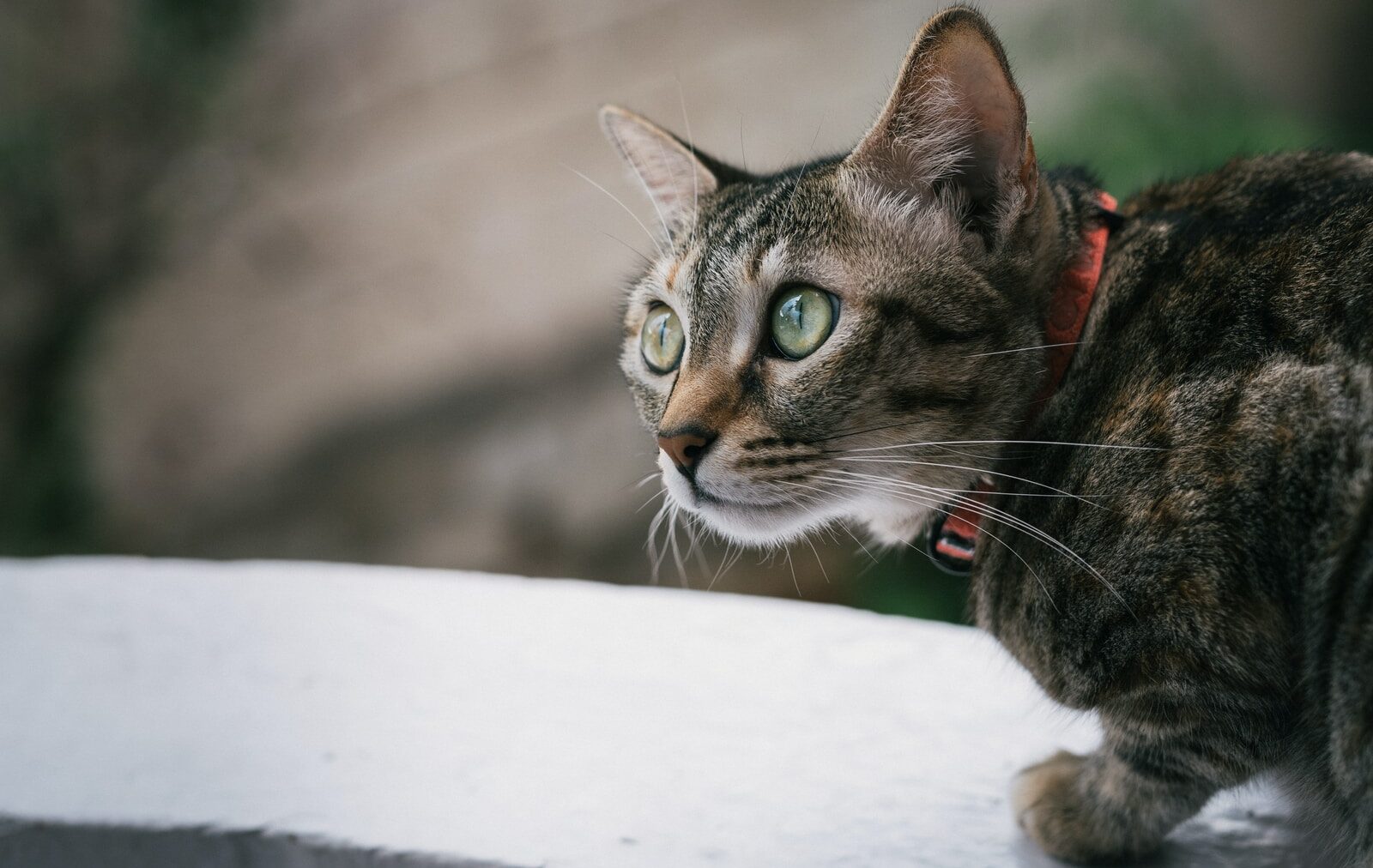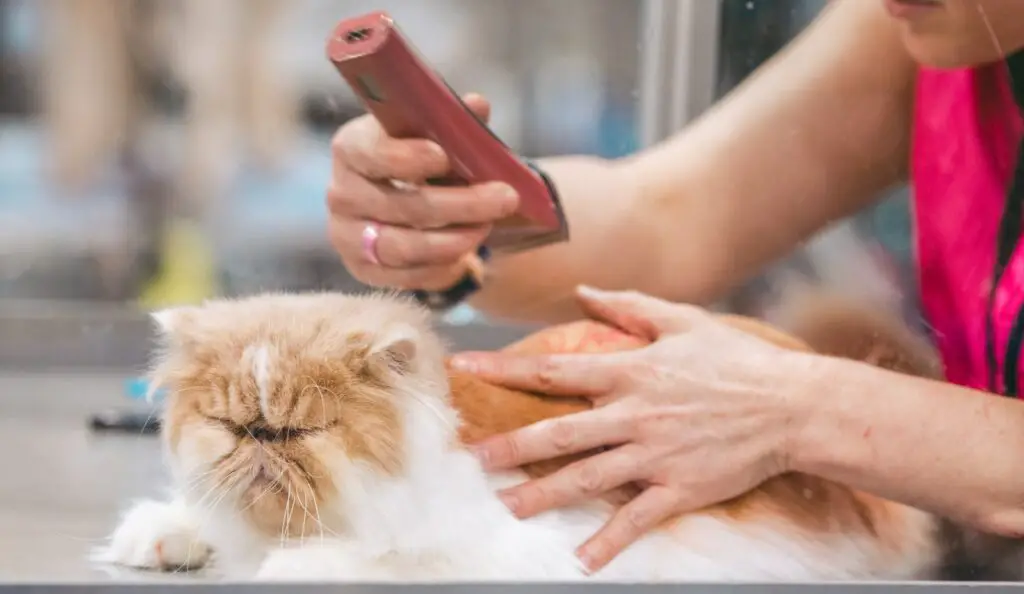
Table of Contents
Key points
- While ear infections are a common disease in cats, if not treated properly, they can result in severe consequences such as loss of hearing or balance;
- Ear mites are responsible for more than half of all ear infection cases, making outdoor cats especially prone to the condition;
- Call a vet right away if your cat starts scratching its ears, shaking its head, or tilting it in a display of discomfort. These might be the signs of an ear infection;
- Ear miticides, olive oil, yellow dock root, coconut oil, and apple cider vinegar are among the most popular and effective home remedies for cat ear infections.
Ear infections are among the most underestimated diseases in cats. The purulent inflammation in the cat’s ear can occur spontaneously, become chronic, or recur after a short improvement. Increased head scratching and shaking are among the first signs of the onset of an ear infection in cats. Different symptoms indicate inflammation in different areas of the cat’s ear. Ear infections should be treated as early as possible to improve the cat’s well-being and prevent permanent damage to the cat’s hearing and sense of balance. Fortunately, there are numerous natural remedies for cat ear infections.
What Does Ear Infection in Cats Mean?
 Cats can develop ear infections just like humans. If not treated promptly, this medical condition can severely damage your cat’s hearing. Ear infections are also quite painful and can result in the loss of balance since cats use their ears to navigate.
Cats can develop ear infections just like humans. If not treated promptly, this medical condition can severely damage your cat’s hearing. Ear infections are also quite painful and can result in the loss of balance since cats use their ears to navigate.
There are many things that might provoke a feline ear infection. However, due to weaker immune systems and constant exposure to parasites, kittens and outdoor cats are more likely to get ear infections.
There are several types of ear infections: otitis externa (external ear infections) and otitis media (middle ear infections). An ear infection is often a sign of another medical ailment rather than the main issue.
Causes of Ear Infections in Cats
If your cat has an ear infection, it can be due to several reasons. In many cases, cats get ear infections due to ear mites or allergies. In fact, mites are responsible for just over half of all ear infections in cats.
Ear mites are tiny spider-like microbes that feed on ear wax. Because they are so small, they cannot be seen with the naked eye. Mites can cause severe itching in the cat’s head and neck, which sometimes lasts for weeks after the mites are gone.

In addition, a large number of bacteria and yeast are known to live in the ear canal and can cause ear infections. Sometimes, reactions to food or environmental allergens can be responsible not only for skin problems but also itchy or even inflamed ears. Respiratory diseases that spread to the cat’s ears can also cause ear infections.
Moreover, ear injuries that your four-legged friend might have sustained during a fight with other animals can also result in a feline ear infection. Another possible cause of ear infections in cats, which many cat owners are completely unaware of, is kidney disease. If your cat suffers from kidney dysfunction, it will lead to a build-up of harmful substances in the body. This build-up can manifest itself in a variety of symptoms, including a seemingly unrelated ear infection
Symptoms of Cat Ear Infections
The symptoms of an ear infection are pretty obvious. An infected animal will beat its ears and scratch at them. The cat will often whine or keep its head bowed because of the pain. The inside of the ear will become red and dirty. In addition, the ear can smell very unpleasant and release fluids.

If your cat suffers from otitis media, its organ of equilibrium can also often become affected, which will exacerbate the symptoms. In this case, the animal will not only tilt its head to one side, but it will also become completely unbalanced: it might stagger, walk in circles, or even fall over.
Any animal with an ear infection should be thoroughly examined. First, the vet will check whether your pet’s ear is infected with mites, bacteria, or fungi or if there is another cause. Sometimes, it’s necessary to conduct additional tests. For instance, the vet might take a swab of the ear wax and subsequently examine it under a microscope. The specialist might also order an X-ray of the skull to identify the origin of the symptoms.
How To Avoid Ear Infections in Cats?
There are no safe ways to prevent ear mites from infecting your cat. Outdoor cats, in particular, can quickly catch the little beasts on their forays into the neighborhood. In addition, other animals that come into contact with your cat can also transmit these parasites. However, at home, you can take various hygiene measures to minimize the risk of a mite infestation.

Start by regularly removing dust from the bedding and pillows your cat comes in contact with. Thorough vacuuming is also essential if you have an animal in your household, be it a dog or a cat. Since mites can survive even outside of their host, reinfection is possible if you don’t clean your home regularly.
In addition to regular grooming of your cat’s ears, take the time to examine the pet’s ear canals. You can also clean the cat’s ears by gently moistening the auricle with a cotton pad and then drying it. At the same time, be careful with cotton swabs, as there is a risk of them pushing the smallest dirt particles deep into the ear canal.
Home Remedies For Cat Ear Infections
Remember that it’s essential to consult your cat’s vet before trying to treat your cat’s ear infection at home. Since an ear infection is usually a secondary ailment, it’s essential to identify any other diseases your cat might have before they exacerbate. If you notice that your cat’s ears are bleeding or produce an excessive amount of discharge, take it to the vet immediately instead of trying home remedies. If the infection is not severe, you can give natural remedies for cat ear infections a chance.
Ear Miticides
You can easily find over-the-counter miticides in local pet stores. Miticides are the most popular home remedy for cat ear infections among pet owners. Each bottle of miticide has clear instructions on how to use the treatment on the bottle. Just follow the directions. Usually, using the drops for just one week is enough to fix the problem. However, you can continue using them until you see changes. If ear miticides don’t help your cat, bring it to a vet.
Olive Oil
 Olive oil is said to be very effective at cleaning cat ears from mites and debris. You can put two to three drops of oil on your pet’s ear and then give it a gentle massage, moving your fingers from the base of the ear to the tip. Then you can use a cloth to wipe the ear carefully and clean dirt and debris from the tip. Keep in mind that you should never insert the cloth into the cat’s ear canal.
Olive oil is said to be very effective at cleaning cat ears from mites and debris. You can put two to three drops of oil on your pet’s ear and then give it a gentle massage, moving your fingers from the base of the ear to the tip. Then you can use a cloth to wipe the ear carefully and clean dirt and debris from the tip. Keep in mind that you should never insert the cloth into the cat’s ear canal.
Yellow Dock Root
This medicinal root has been famous for its anti-inflammatory properties for centuries. Mix 5 drops of yellow dock root extract with 1 Tbsp of water. Soak a cotton disk in the solution and lightly press it against the upper part of the cat’s ear and its tip. The solution will drain to the inner ear. However, you should never pour the mixture directly into your cat’s ear or stick any foreign objects into the ear. Repeat this procedure every other day for one fortnight.
Coconut Oil

Similarly to olive oil, you can use this home remedy to clean cat ears. Try adding a little bit of garlic powder to a tablespoon of coconut oil to repel parasites. Soak a cotton pad in the solution and then press it against the inner side of your cat’s ear so that the mixture slowly works its way down the inner ear. To dislodge debris from your cat’s ear, try massaging it in an upwards motion from the base to the tip.
Apple Cider Vinegar
A mixture of water and apple cider vinegar in a 1:1 proportion is an effective home remedy for treating yeast and bacteria infections. This natural remedy is very popular among cat owners.

Remember, you should never pour apple cider vinegar directly into your cat’s ear. First, soak a cotton ball in the mixture and then lightly press it to the cat’s outer ear lobe and the tip of the ear to allow liquid to drip down into the ear.
If you’re a fan of natural, plant-based remedies, check out our pet VitaminA products. They are perfect for improving your cat’s mood, alleviating stress and anxiety, and boosting its immune system.
FAQ
How can I treat my cat’s ear infection at home?
Ear miticides are some of the most popular home remedies for treating cat ear infections. Olive oil, yellow dock root, and coconut oil are other home remedies you can use to clean out ear mites and, therefore, help your cat with its ear infection.
How can I treat my cat’s ear infection?
Most veterinarians prescribe a topical medication for ear infarction treatment. However, if your cat has a severe infection, the vet may prescribe oral medication. You can also treat cat ear infections at home by using natural remedies such as ear miticides, olive oil, yellow dock root, or coconut oil.
Do ear infections hurt cats?
Yes, ear infections can cause severe pain in cats and lead to the loss of hearing or balance.




